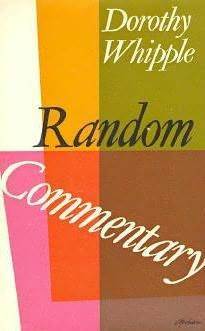What do you think?
Rate this book


159 pages, Hardcover
First published January 1, 1966
I waste time. I am a bad workman. In work, I am half-hearted. I am only enthusiastic when I am sitting in a chair doing nothing or lying in bed in the early morning.
The idea that it is only men who have dreams and that women want to be thought of all the time by men is silly-- and far from the truth.